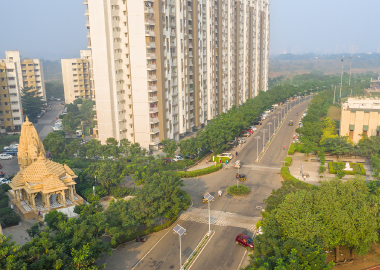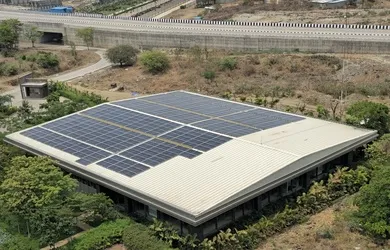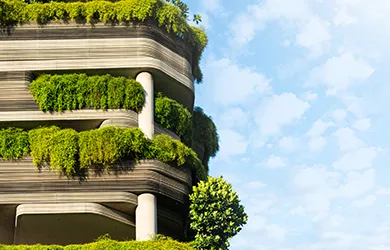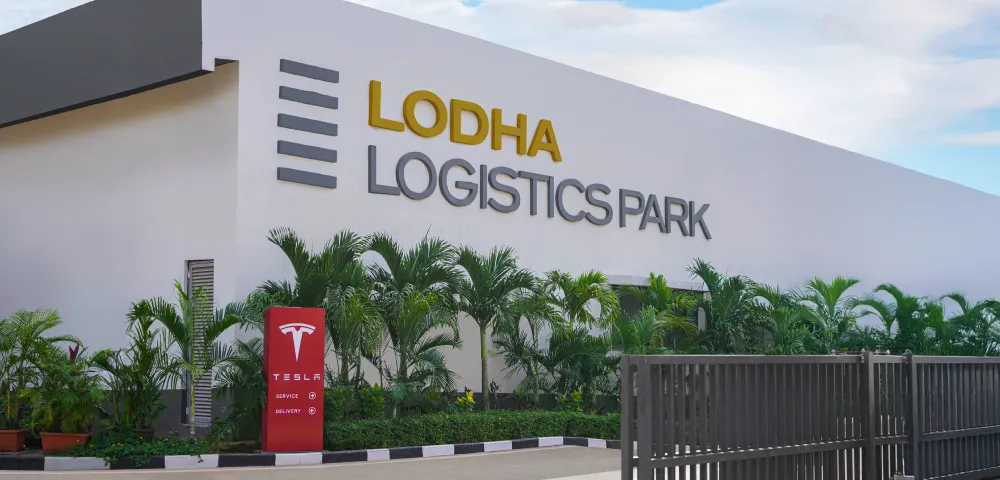Sustainable Real Estate: The harbinger of a carbon-neutral future
By lodha
January 28, 2022
According to a recent report by IBEF, the real estate sector in India is expected to reach a market size of $1 trillion by 2030 and contribute 13% to the country's GDP by 2025. With real estate being the second-highest employment generating sector in the country, it is one of the significant contributors to the Indian economy. The sector has been witnessing immense growth over the years, however, of late, what majorly resulted in the structural transformation in housing demand is the pandemic and the consequent lockdown. Being locked in for a longer time and with home becoming the epicenter of all activities, people realized the importance of owning a home, especially amidst the unprecedented circumstances.
With real estate emerging as a major player in boosting the national economy, the duty lies on large real estate developers to ensure and encourage responsible living. Over the past few years, climate change and sustainable development have become ever contextual. Hence, it is important to develop the right perspective towards combating climate change and actioning our commitment towards providing a better Earth to future generations.
The country's construction sector is responsible for about 22% of the total emissions, while buildings contribute to one-third of global emissions. In such a scenario, a large-scale shift towards green housing acts as a viable way to address climate change. Through sustainable design, construction and operations, green buildings consume less water, optimally use energy, conserve natural resources, generate less waste, ensure healthier living spaces, while providing enhanced ventilation, adequate daylight, superior air quality, and overall well-being. For instance, at our developments we have implemented initiatives like use of solar for lighting common areas & streets, solar panels for hot water, waste water treatment plant, wet waste composting, rain water harvesting, to name a few.
Developers need to set their targets for achieving carbon-neutrality in their operations and accordingly formulate and implement sustainable frameworks. Successful pilot projects will provide opportunities to scale up feasible solutions and achieve significant emission reductions. The entire process can be devised in alignment with the internationally recognized GHG Protocol's scope 1, 2, 3 emissions accounting standards to establish a baseline emission inventory.
The positive change is that with the lockdown experience revealing the downsides of energy-intensive buildings, consumers are now preferring more efficient properties. Considering residential developments, where people are spending a lot of time now, a new demand for green and efficient energy systems is pacing up. A recent survey by Lithium Urban Technologies too states that 69% of respondents have shifted towards a more sustainable way of living since the onset of the pandemic. The increase in environmental awareness has resulted in a higher preference for developers offering green housing or LEED-certified projects.
Studies reveal that another major contributor to the country's CO2 emissions is the transport sector that accounts for 13.5% of emissions, with road transport only accounting for 90% of the sector's final energy consumption. The traditional ICE vehicles (Internal Combustion Engines Vehicles) contribute to increasing air pollution, jeopardizing societal health outcomes, and perpetuating the use of fossil fuels. Having said that, a strong push towards clean mobility is crucial and the emergence of electric vehicles provides a ray of hope. EVs eliminate tailpipe emissions, reduce dependence on fossil fuels, improve community health, safeguard energy security, and improve prospects for employment. Rapid adoption of EVs coupled with electricity generation from renewable sources is the single highest impact that can be made on global emissions.
The evolving sustainable lifestyle has led to an increase in demand for EVs and subsequently for EV charging stations in buildings. Industry research shows that one in five prospective buyers is now asking for EV charging provisions as an amenity.
While governments are also promoting EVs through subsidies, gradual mandating of EV charging in residential societies and encouraging service providers to install charging infrastructure is essential. One of the major challenges observed in an EV purchase is range anxiety. Therefore, to foster EV adoption, initiatives need to be led by responsible developers by partnering with leading EV charging providers to instill confidence in the residents to make a switch. Lodha too recently tied up with Tata Power to provide EV charging solutions at all its projects in Mumbai MMR and Pune.
Real estate industry is playing an assertive role in shaping the narrative and adopting global best sustainability practices. Urban communities that are resilient and inclusive - socially, environmentally, and economically, are the need of the hour. The coming year will witness the industry taking more concrete steps to incorporate this multi-pronged approach into every aspect of the value chain.
Moreover, having sustainable amenities at the projects portray the image of an organization, enabling them to communicate and uphold their ESG goals. The fact that the last decade has witnessed rapid climate change and COVID is still prevalent, and these shocks have brought financial crisis and instability globally, and impacting governance, businesses, civil societies and infrastructure all over, calls for accelerating the ESG transformation process. Investors and lenders have also become highly sensitive and cautious towards environmental issues under the ESG standards.
A recent report by the Energy Policy Institute at the University of Chicago suggested that India is the second most polluted country in the world and that most of its population lives in areas where the annual average particulate level exceeds WHO guidelines. It is thus crucial to implement sustainable measures to achieve the targets of net-zero emissions. With the lead being taken by the responsible governments, the transportation industry, the power industry, and the largest real estate developers, a comprehensive view needs to be developed to combat climate change in India, and eventually provide a better quality of life to our future generations.
Authored article by Raunika Malhotra, President - Marketing & Corporate Communications, Lodha, published in Financial Express.
Know more about the Sustainable Real Estate from Lodha
You may also like



 Enquire
Enquire
 Call
Call
 chat
chat
 Search
Search





